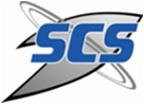Vivid Representing, Artificial to Human
This is a special track focusing on expressiveness and tractability in knowledge representation in relation to reasoning from the interdisciplinary perspective of the cognitive sciences, including (but not restricted to) artificial intelligence, cognitive psychology, computer science and neuroscience. Following the seminal paper by Hector Levesque (1986), a substantial part of the discussion has been around the concept of vividness. At the same time, a similar concept linked to semantic memory, imagery and mental models, has had a long history in cognitive psychology and philosophy of mind, with a new emerging link to cognitive neuroscience. The purpose of this track is to explore the state of the art, advances, and further potential developments of this area of investigation while creating dialogue, communication and debate across all the sub-disciplines. Within such context, an important goal is to define the importance of vividness for simulation and modeling, therefore, it is mandatory that the papers submitted to this track include contents explicitly addressing one of these two approaches. Topics of particular interest for vivid representing include, but are not limited to:
- Knowledge representation and databases
- Reasoning, in artificial and human systems
- Analogues, models, diagrams
- Visual heuristics
- Mental models
- Spatial frames of reference
- Perceptual symbols and embodied cognition
- Neural modeling
- Imagery
All applications (educational, industrial, medical, military, etc.) will be considered. To facilitate communication among disciplines that do not share the same terminology, it is required that the papers in this track be written in a non-technical style, minimizing jargon and including all formal details in an appendix. As an example of ideal paper for this track, the authors are referred to the linked paper by Levesque. All modalities for submission, review, acceptance, and eventual post-revision final submission with final publication strictly follow the general SCSC guidelines and instructions for authors (that can be found here.
| Key Dates | |
|---|---|
| Special Sessions Proposals | January 31, 2010 |
| Paper submission | February 28, 2010 |
| Notification of Acceptance | April 30, 2010 |
| Final (in most cases, revised) submission | May 28, 2010 |


